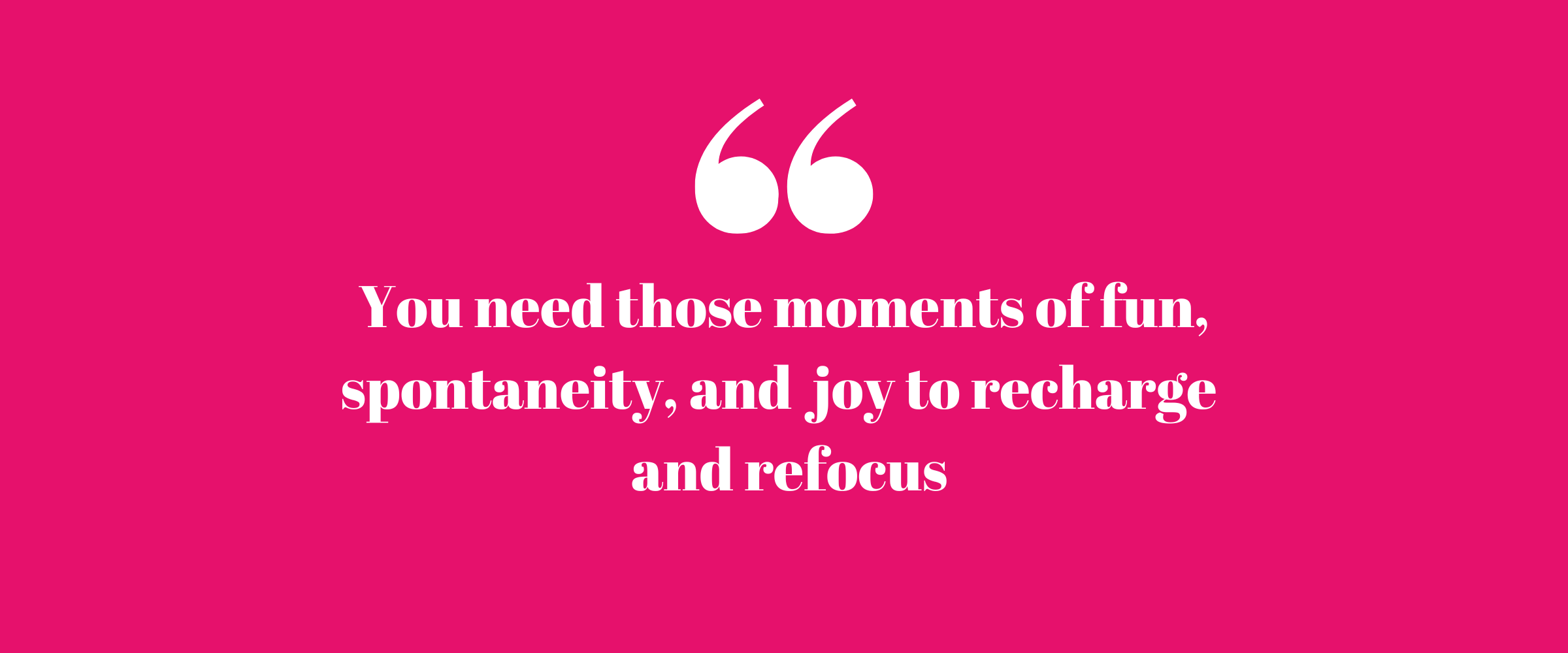How to have a healthy relationship with achievement
Whether you’re crossing the finish line of a 10k you trained hard for, or finally bringing that brilliant business idea to life, there are few things in life that feel as good as seeing a project come to fruition.
But, sometimes, when working towards something we really want, we can lose sight of what actually matters. We might sideline plans with friends, cut back on hobbies we enjoy, and replace living in the moment with a totalitarian routine that leaves virtually no room for fun and enjoyment.
In psychotherapy, this is known as taking a rigid approach to your goals, and when taken too far it can have a knock-on effect on your mental health. Gin Lalli, a solution-focused psychotherapist and author of How To Empty Your Stress Bucket, believes emulating others has a lot to do with it.
“Successful people all over social media are talking about planning, productivity, and manifestation, and so your perception is that, if that’s what they are doing to be successful, you need to do that too,” Gin says.
The trouble is, this can often feed into all-or-nothing thinking. That might mean fixating on a goal, leaving very little time for relaxation, or sidelining those just-for-fun activities in favour of getting stuff done.
When we take this approach for too long, Gin says it can lead to an increase in stress and anxiety. “Your mind cannot run on one track at 100MPH for very long. Just like a car needs to stop and refuel, so do you.”
Gin believes that, if you’re a rigid goal-setter, you may have got the process backwards. Rather than focusing on your goals with an intensity that will lead to burnout, you need those moments of fun, spontaneity, and joy to recharge and refocus.
“Your subconscious mind will continue to work on your goal while you’re having fun – I guarantee that – and once refreshed, you’ll have far more motivation to continue,” she says.

Gin uses taking a tea break at work as an example. Imagine you’ve spent hours pouring over a problem. Eventually, you give up, and go for a walk or boil the kettle. When you come back to your desk, the solution often seems to appear out of nowhere.
As Gin notes, this is because our subconscious mind is able to better problem-solve when we’re relaxed. “Solutions, ideas, and creativity flow better when we have taken the time out for ourselves,” she explains.
How does this apply to your approach to achievement? Well, it can be incredibly freeing for a start. It means that you don’t need to work on your goals 24/7, while good times take a backseat.
“People with flexible approaches to their goals are often happier and calmer, and they understand that it won’t be the end of the world if they don’t reach their goal; they will adapt and adjust accordingly, if and when the time comes,” says Gin.
It may help you develop a healthier attitude to failure, too. “When you’re a flexible goal-setter, your level of acceptance is high. You understand what you can and cannot control,” Gin explains.
Striking the balance
So, now that you know taking time out for enjoyment is a positive thing in terms of progress, how can you strike a balance between good times and goal-setting? Gin says there are a few simple tweaks you can make.
Let go of comparison
The pressure to achieve is often rooted in comparison. We see others succeeding and feel less about ourselves if we aren’t able to do the same. In turn, this can lead us to put unnecessary pressure on ourselves to emulate their success.
“There’s no such thing as an overnight success,” Gin points out. “There has undoubtedly been a lot of background work, and maybe even a team of people to help bring that person’s goal to life.” When looking at others, it may help to bear this in mind.
Remembering the popcorn analogy could prove useful too. According to the popular adage, popcorn is prepared in the same pot, in the same heat, and in the same oil, and yet the kernels do not all pop at the same time. Humans are the same; we all progress at different rates, so sit tight – your pop is coming!
Be realistic
We’re more likely to be rigid with our goals when we’ve set the bar far too high to begin with.
“You need to get objective and rational about what is achievable,” Gin advises. “For example, doing a triathlon in six weeks’ time when you’ve never run a 5K is pretty unachievable, and as much as you might want to do it, deep down you know it’s not realistic.”
If achieving a goal is coming at the expense of enjoying your life, it’s time to reassess. We’re often told to reach for the stars, but sometimes it’s OK to do what’s manageable, and reach for the low-hanging fruit instead.

Make time for fun
The next time a last-minute invitation, like brunch with your friends or a spontaneous trip, comes your way, remember the word ‘balance’. The goal is to have rewarding and fulfilling experiences in each area of your life, rather than tipping the scales in favour of one, like your career, for example.
A good question to whip out when you aren’t sure which area of your life to prioritise? How does this opportunity fit into my overall life plan?
Just like you create routines and put strategies in place to achieve your goals, it can be helpful to pencil fun in the diary, too, making it less likely to fall by the wayside.
Change your perspective
Perhaps Gin’s most valuable piece of advice is to get some perspective. Sometimes our goals feel like the be-all and end-all, and we assume that we won’t be happy or satisfied until we achieve them. This isn’t the case. You can find ways to live in the moment, no matter where you’re at on your journey.
To keep that in mind, Gin advises reframing your failures and remembering just how far you’ve come. “Often, we forget how much work we have actually put into something just because we haven’t got that final little piece of the puzzle,” she points out. “Make sure you keep observing the progress you’ve made.”
Taking a flexible approach to your goals may mean that it takes a little longer to reach your destination. Balancing goal-setting with good times means making plenty of pit stops to replenish and refuel along the way. The process may be slower, but you’re more likely to cross the finish line with your wellbeing intact.


Comments